KNOTFEST 2024
RNA Showgrounds, Brisbane, May 24
by Samuel J. Fell
[First published in Rolling Stone (online), March 2024]
I was somewhere out the back of Machinery Hill when the Jack Daniels began to take hold.
You know, to paraphrase.
But there were bats.
Lots of bats.
Swooping low, big wing-span bats; fruit bats, lodging in the Morton Bay Figs that shroud the edges of Brisbane’s RNA Showgrounds, an oval of Queensland-green grass surrounded by grandstands serving a time gone by, surviving (now, just) in the middle of that small wedge of prime real estate along Gregory Terrace and the start of the bare, concrete reach that becomes Lutwyche Road, booming low and slow out past the hospitals and the freeway on-ramps toward the outers; the hot and dreary suburbs, the fibro shacks on overgrown plots and brick veneer two-bedders fronting onto rumbling through-roads; Brisbane…
But the believers are under the bats. Out the back of Machinery Hill. Out the back off the green grass, on the concrete, pissing in the plastic piss-palaces and perusing the places – the food places, the merch places, looking for a place to sit amidst the constant-ness of it all.
Early, it’s Speed; that’s a place. Constant. Hardcore. Angry but joyous, which defines most of the day, the third and final day of Knotfest, rumbling dirty up the east coast, not stopping hardly at all; no quarter asked, none given. Heavy metal; make your excuses at your own cost.
They thrash about in their own way and I, having traversed the covered carpark and the striped black and yellow tape and the chat and the ‘lemme check yr bag, bro’, ‘yeah, man’ dance, come out onto the terrace and immediately follow the music, and so I find Speed thrashing about in their own way, and it’s not my way, but man… it’s infectious as shit, and – for the first time all fucking day, and make no mistake it’s a long fucking day – I get someone else’s groove.
And so I hit my booted heel into the ground in time with the beat.
And I start moving my head in time with someone’s beat.
And this defines the day. The beat.
And the riff. The Beat and the Riff… this is heavy metal, no? Agree or not.
And, indeed, agree or not. This is also heavy metal, for, like politics or religion or any other shit on this goddamn glorious sphere upon which we all stomp, it’s all subjective; you dig it, or you don’t. But, in the instance of Knotfest 2024, we dig it or we don’t in the same space, about the same thing. ‘Metal’ is an umbrella term – you don’t have to dig it all, but at its core, we’re all here together.
And so we are in Brisbane on this sultry late-summer’s day. The sky hangs low like an elephant’s undercarriage, more often than not loosing a fine drizzle upon all us metal faithful, spending our Sunday in the sanctity of the beat and the riff and the Cathedral of Fuck You (“This is our church,” sings Elizabeth Hale of Halestorm later on, as they finish their set) where no one is left behind and we’re all one and together.
Metal crowds – the nicest and best of all musical crowds.
After Speed, on the right-hand-side stage, is Skindred from Newport in south Wales who delight in the drop… the long groove that then drops into the ‘headbanger’s delight’ – man, I did not (having not heard their music prior to this very weekend) expect this from this crew, but (again), I find someone else’s beat and I also find (quickly and effortlessly) how easily I can adapt to how they’re shaping metal and so I listen to vocalist Benji Webbe
(Cheeky motherfucker that he is – “Who needs a t-shirt?”, holding up a band t-shirt [crowd yells that they do], “Fuck you, sixty dollars once you’ve left.” Throws it back over his shoulder)
and, yes, this is (to some extent, at least) ‘My Jam’. Or his, or hers next to me, or anyone’s roaming about the grounds. I came into this day with a list of who I wanted to be in front of and Skindred weren’t on that list but they are now.
And I’m more than happy with that, and this, as was inevitable, is where the Jack Daniels comes into play. But, as we’re all in Sunday Sanctuary together, who gives a goddamn?
Escape The Fate step to the pulpit next up and begin with ‘Forgive Me’, a song which any self-respecting clergyman would denounce (as it contains the line, ‘I killed myself today’), but let’s be honest – how many men of the cloth are here today? Unless, by cloth, you mean some sort of black t-shirt with any number of slogans printed upon same…
[Examples of t-shirts spotted at Knotfest, 2024…
- Kanye? Never Heard Of Her (with a picture of Lemmy) – Classic
- I Like His Beard (he, next to her, wears a matching shirt saying, ‘I Like Her Butt’) – Fair play
- My Beard, Your Boobs – Classy…
- It’s A Slut Party Right Here – FFS, I almost wish I was in actual church…]
ETF, again, aren’t my tin of overly-priced booze, but you’ve gotta tip the hat where it’s due; new(ish) guitarist, Matti Hoffman is a monster across those six strings and when the band see fit to drop it all down to the tacks, the tacks, then it’s as good as most else I hear all day long.
Knotfest is set up in the same vein as CMC Rocks, or as Big Day Out used to run – two huge stages, side by side, one being used while the other is hurriedly prepped – crew scuttling about gantries and hauling cable like ants before a rain storm – the change between sets, then, effortless, hardly more than a handful of seconds all day long (and, on the odd occasion where there is a short delay, some wag in the booth presses play on the likes of Vengaboys’ ‘We Like To Party’, or Backstreet Boys’ ‘Everybody’) and so the morning lethargy burns off and we begin the run into the long, hard, flat afternoon moving from stage to stage, a whirlwind of guitars, thumping and churning and rolling about on the flat-trodden grass, slick underfoot as the drizzle carries on.
Thy Art Is Murder do exactly as you’d expect them to, razor-sharp, tight as a drum; Wage War simplify things somewhat, more four-to-the-floor thrash, punctuated, as they’ve been want to do in the past, by a solo acoustic number that fits well within the confines of the middle afternoon, Briton Bond’s voice careening back off the stands, filled with people sitting, watching, waiting.
Everyone is waiting.
Waiting for what? I don’t know and so lope off to find food, somewhere to sit myself, watch the bats, the people. I watch Asking Alexandria too, at least for a bit as their brand of metal – metalcore? Touches of industrial? Too much singing, not enough growling? – isn’t for me and so I wander through the market past the lockers, smoke a cigarette in the corner, flick it in the bin and head back onto the worn grass in the late afternoon as The HU come on stage, and this is wild shit.
Mongolian folk metal, if you can dig it, which most seem to be doing – their set is underpinned by an almost constant low and heavy drone, it (the music as a whole) seems to slowly emanate from the stage, slowly seeping out and out and through you until it hits brick up the back of the old stands and then rolls right back – the traditional throat singing enhances the drone and so it all seems to follow you, no matter where you’re lurking onsite…
Filling cracks and crevices.
They are fucking happy to be here, man, they raise their arms to the sky and growl their appreciation, which is hurled back ten-fold, indeed, and the use of the traditional morin khuur (a bass guitar / violin kind of combo, two strings, played with a bow) is of a level above even the next, and the next… sounds you’d reckon Dimebag Darrell would get excited about.
It’s getting dark around now. The bats, they’re out and they swoop low and look to settle but lift at the last second and then they’re gone, lost in the evening mist.
Halestorm bring an immense energy to proceedings, Hale vivacious and vicious all at once; strobing stage lights cut patterned lines through the falling rain, for quick nips of time brightening the dark corners, high in the stands down the back, booming up iridescent as the Riff comes in, all of it breaking down into a sludgy puddle that seems done and dried all too soon, but then one switches their attention to the left side stage and Lamb of God begin, and this is metal, the heaviest of metals, the most precise and yet rangy and fucked up metal of the day, frontman Randy Blythe a goddamn pinball of pent up aggressive energy…
He bounces and never stops, jumping off drum risers and fold-back speaker alike; he holds court, talks to the crowd, riles them up and pushes them back, pushes them around and the circle pit down the front churns and churns and those of us back a ways, about the base of the sound tower, nod our heads heavy in time with it all, and truth be told, this set is the first of the day that finishes far too soon, way too soon, they do finish though and the lights flash a dirty yellow and then it’s done.
Out the back, on the front terrace or in the alleys between stands or on the slick and hard concrete behind Machinery Hill, people are milling about and it’s blurry; time and space constantly warping… is it the drink? Maybe. The dull thud in heads that mutes the sound? Perhaps… people are still waiting.
I stop and lean against the wood outside the Cattleman’s Bar, take stock for a moment but fall into impromptu conversation with Dylan, who’s only got one shoe having lost the other in the LoG pit and so his sock is sodden but he couldn’t give less of a shit; he bums a few tally-hos and we talk about bands and the act of worshipping in the high church of heavy metal, which he seems fairly well attuned to, and then his phone rings and he hops off to find his mate. Hops off to continue waiting, like everyone else.
They’ve been waiting all day.
For Disturbed? Yes, for many. Disturbed have been doing what they’ve been doing for some thirty years – three decades of ‘The Sickness’, three decades of their nu-heavy hybrid that is, by now, tight as a new snare and so they Deliver. I observe from the side, from high up in one of the stands, from the back. I don’t like their music, I never have, but one cannot deny how fucking good they are at what they do – this is music done clinical; for many, when they’re done, it’s a devastation.
But, of course, it is now time. This is what people have been waiting for; people who’ve been wandering about all day taking in the Beat and the Riff but, really, waiting for the Beat and the Riff that they’ve known for decades, that they haven’t seen in the flesh since 2001…
And so it is then, that Pantera take the stage, and people push forward, eager faces lit large by the flashing strobes… and there they are, Rex on his goddamn bass and Zakk (you can never see his face, covered, head down, intense) and Charlie (metronomic, the Beat) and Phil, Phil, fuck I’ve missed you, brother…
And then the sound gives out.
They don’t know it through and so continue thrashing through ‘A New Level’ having a fucking ball, but us out in the dark are howling, screaming, trying to be heard (the drums and vocals are still alive) – ‘fix the fucking sound, man, the sound…’ Word gets to the band and so they stop and there’s a pause – the quietest period of the entire day – and then, a minute or so later, they’re back and so they begin again, ‘Mouth For War’, and they’re off.
To my mind, to my devastated mind, the sound never quite comes back to how it was though, Wylde’s guitar remains too low in the mix (you’ve gotta strain to hear it, strain…) but damn, man, Pantera after all this time – and they (Rex and Phil) have schooled Zakk and Charlie (pros, total pros, as you’d expect) and so the sound is Pantera – Vinnie and Dimebag loom large, each a face on Benante’s kick drums… For the fans, for the brotherhood, for the legacy, printed on t-shirts and posters and all over the fucking place, that’s what this tour is.
And they own it. They whip and howl through what is surely the shortest set of the day. It cannot be over… ‘Walk’, ‘Strength Beyond Strength’, ‘Fuckin’ Hostile’, vague memories of favourites swim through the murk later on… but it is over and we’re left standing on wet grass in the middle of an arena, Brisbane lit around us as the sound fades and finally, finally dies. The band hug on stage, they salute the faithful, and it’s done.
The bats have gone, and I imagine, as I trudge out with my brethren, that the flat-track concrete out the back of Machinery Hill is quiet now. Rain drips from the figs and the closer you get to the front gate, you can hear slow traffic out on the Terrace, the sound of real life.
My head thrums. With the Beat and the Riff. All together, some sort of sonic melange, a day’s worth of heavy shit, stuffed into my head. People sing as we walk through the carpark but the further away we get the more the crowd thins and the sound and the singing and the laughter die off and then I’m alone on a slick street somewhere in Brisbane, Knotfest behind me, but the Beat and the Riff living on.

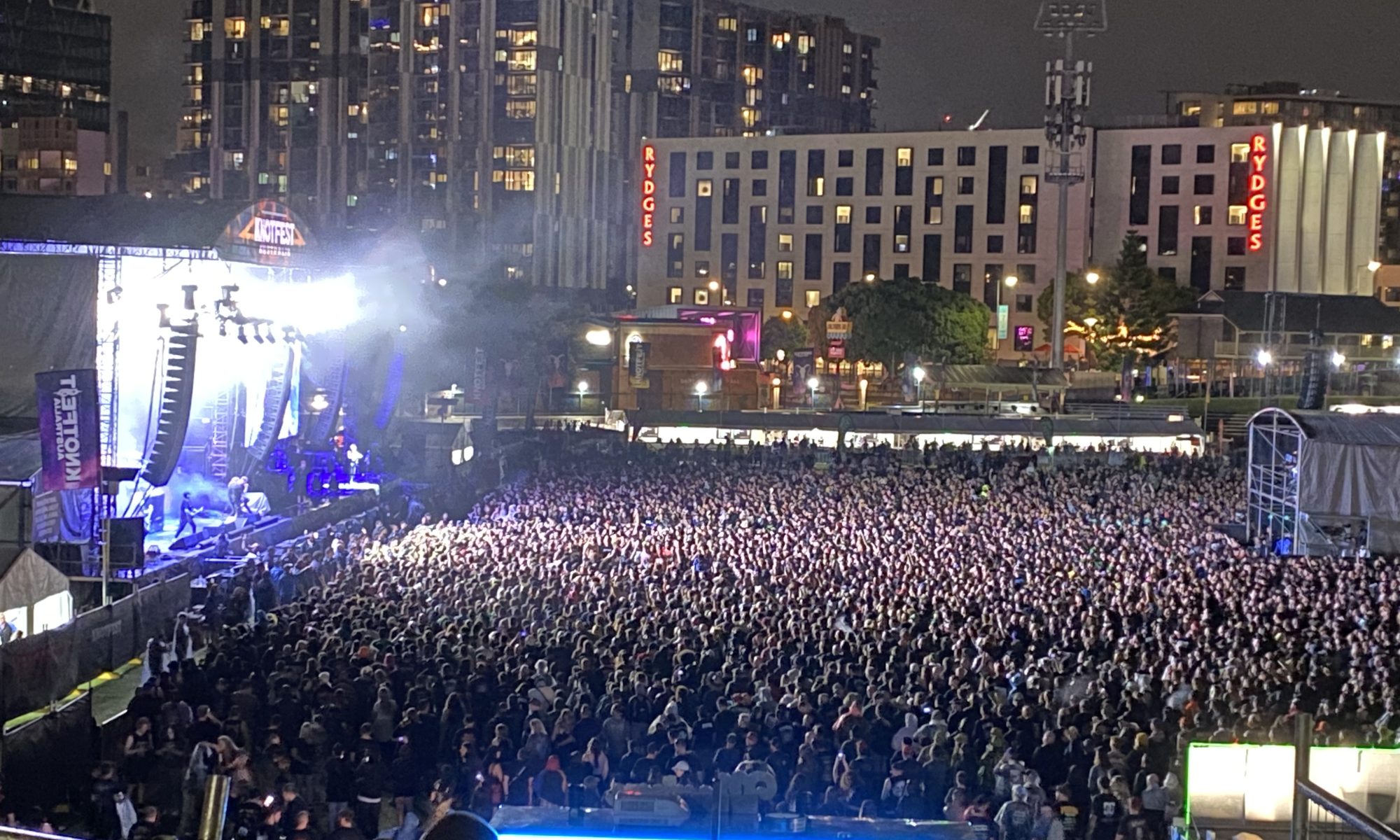
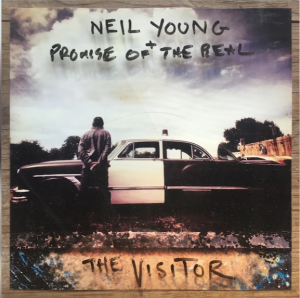 NEIL YOUNG & PROMISE OF THE REAL
NEIL YOUNG & PROMISE OF THE REAL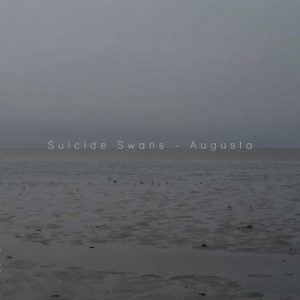 SUICIDE SWANS
SUICIDE SWANS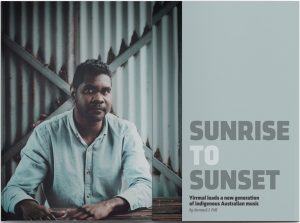
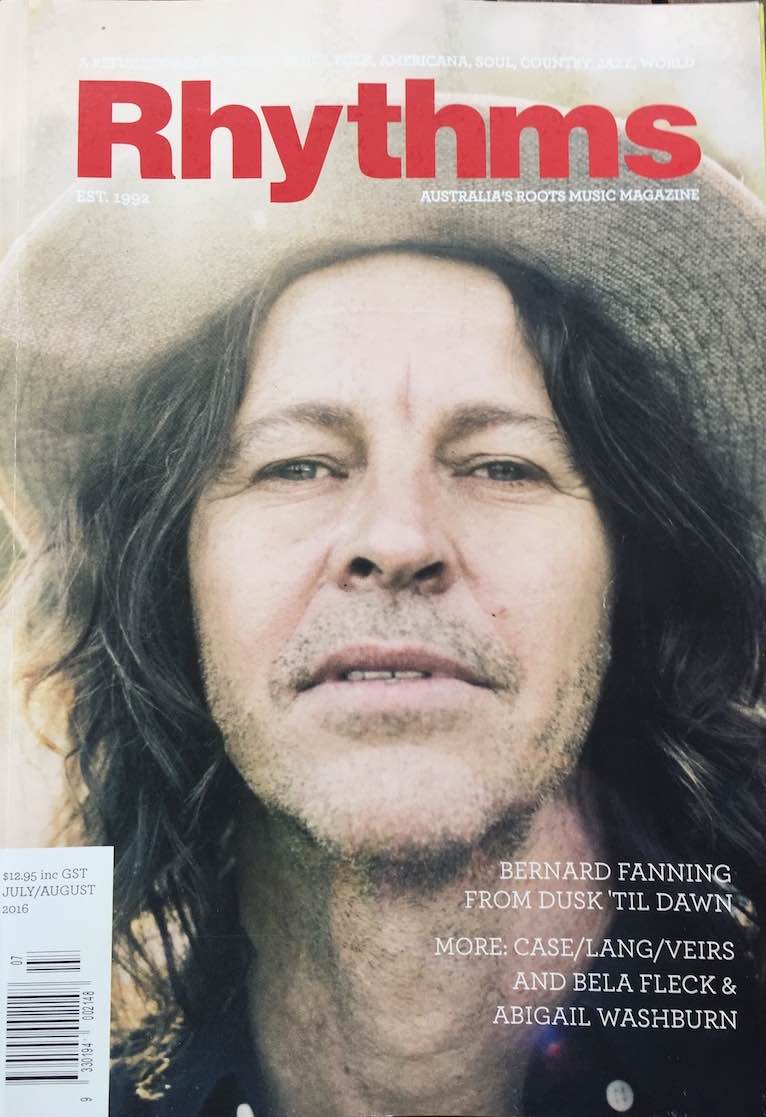
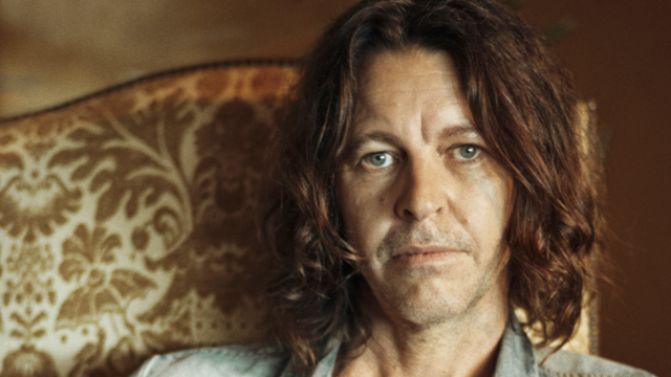 “Civil Dusk, the term actually comes from civil twilight, which is a photography term,” he tells me. “It’s when the sun has gone down beneath the horizon. Scientifically, I think it’s when the sun is six degrees below the horizon. But pretty much everything is still visible, but not in direct light. And it looks different. So that idea, that metaphor…”
“Civil Dusk, the term actually comes from civil twilight, which is a photography term,” he tells me. “It’s when the sun has gone down beneath the horizon. Scientifically, I think it’s when the sun is six degrees below the horizon. But pretty much everything is still visible, but not in direct light. And it looks different. So that idea, that metaphor…”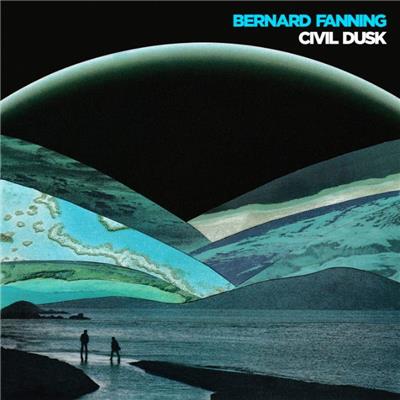 I suggest that despite how different this new album is to Departures, his second solo record which came after 2005’s Tea & Sympathy, to him it would no doubt seem a natural evolution. “Yeah,” he concurs. “Totally. But at the same time, I can understand why some people when they heard ‘Battleships’ for example, were like, ‘What the fuck?’
I suggest that despite how different this new album is to Departures, his second solo record which came after 2005’s Tea & Sympathy, to him it would no doubt seem a natural evolution. “Yeah,” he concurs. “Totally. But at the same time, I can understand why some people when they heard ‘Battleships’ for example, were like, ‘What the fuck?’